Advertisement
Syringe Redemption Aims To Keep Needles Off Boston Streets
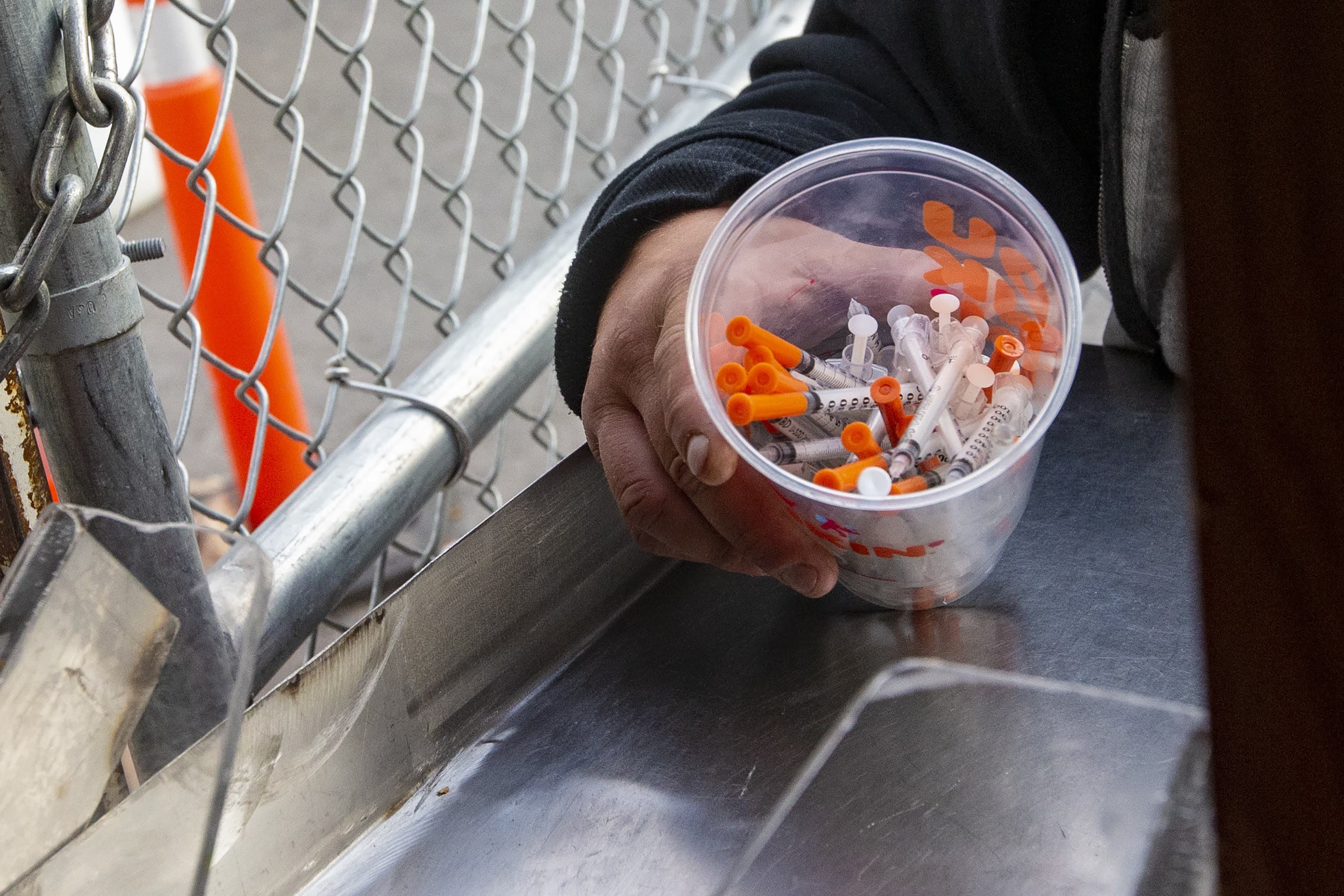
Residents and business owners have been complaining about syringes littering the streets of some Boston neighborhoods for years.
Perhaps nowhere more so than the intersection of Massachusetts Avenue and Melnea Cass Boulevard in Boston — often called "Mass/Cass."
But a new program to clean up the needles appears to be making a difference.
The program, known as the Community Syringe Redemption Program, operates out of a trailer on Atkinson Street, near a city-run center where people can seek help for addiction. The program pays people for syringes they collect on the streets.
Last week, dozens of people were standing in line even though it was just before 6 a.m. They were there to turn in the needles they'd collected. For each one, they receive 20 cents — up to a maximum of 10 dollars.
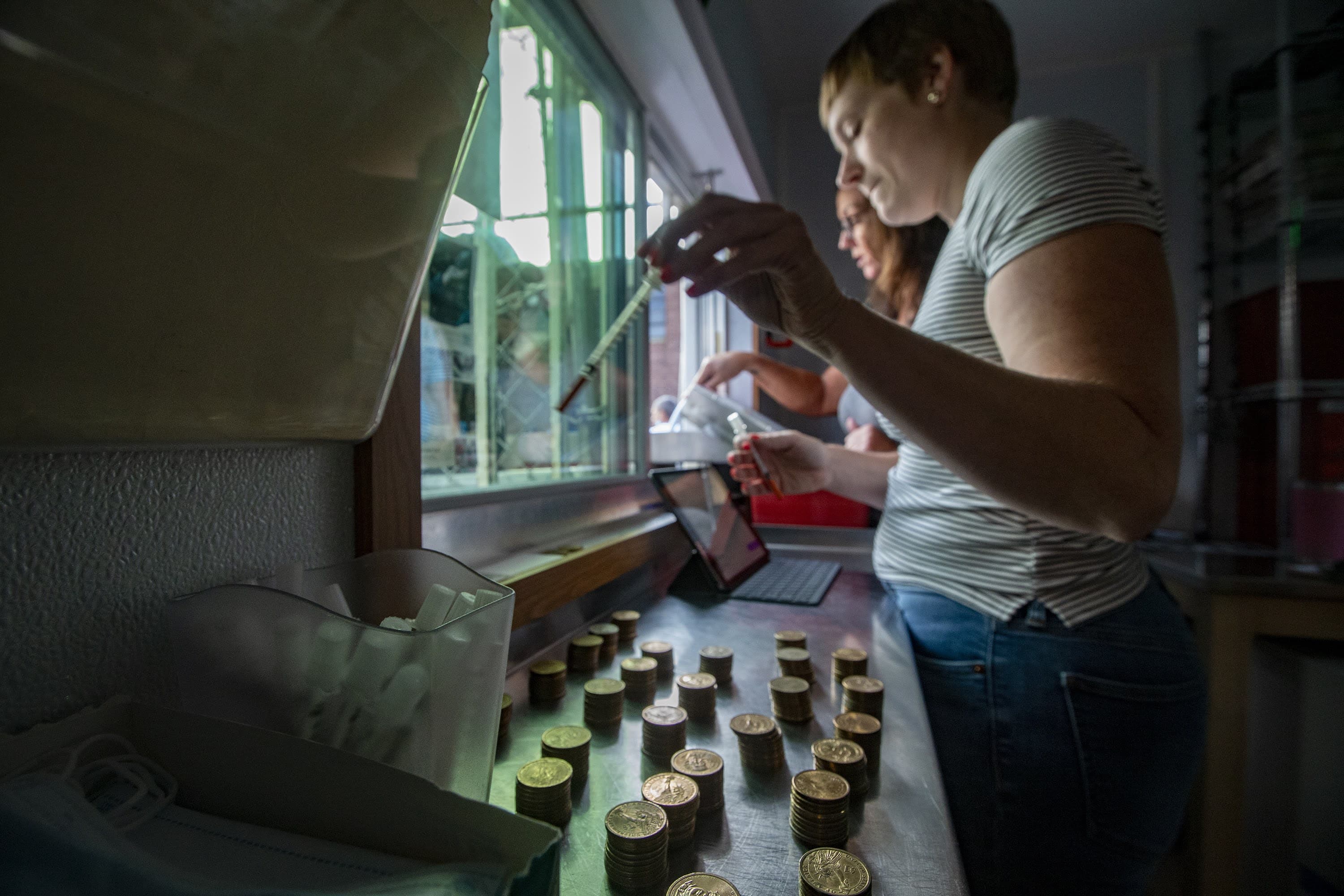
Inside the trailer, three workers from the company Addiction Response Resources stood crowded behind small windows — collecting the needles through a slot. They paid the participants in dollar coins, while offering supplies such as naloxone, the drug that reverses an opioid overdose.
One man turning in syringes told them people aren't discarding their used needles on the streets anymore.
"Any time someone sees a needle, they pick it up and put it in a container," he told Allie Hunter, the co-founder of Addiction Response Resources.
"That's what we do," she told him.
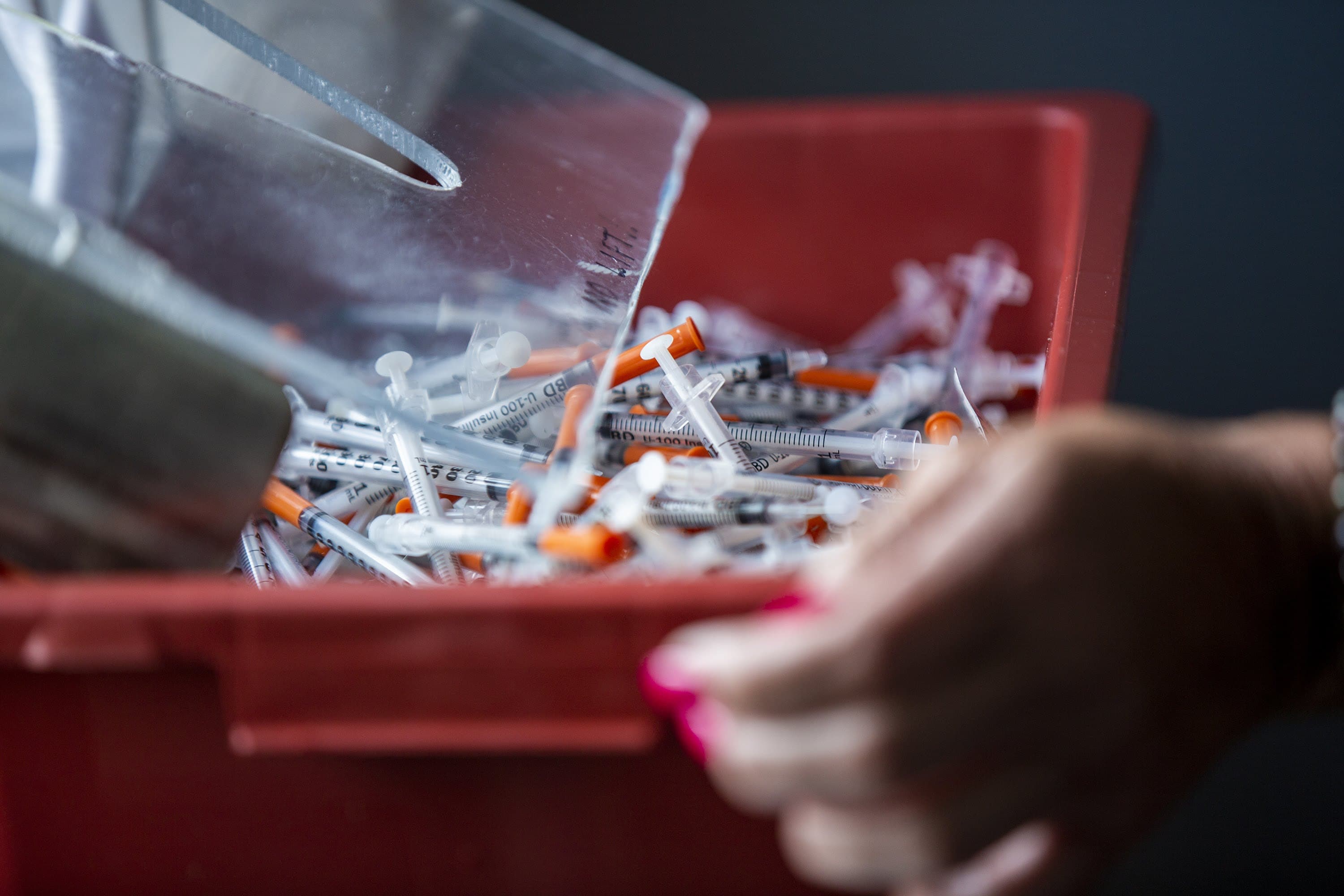
In about two hours, a pair of large plastic bins were full of what Hunter estimated was about 5,000 needles. Hunter started the syringe redemption program as a pilot in December and has been surprised by the response.
"When we started, we had hoped to collect a thousand needles a week," Hunter said. "And we collect an average of about 17,000 a week, and last week we collected 30,000 just in the last week alone."
That's without any advertising. The program operates through word of mouth. Participants must sign up and give their names. They can get containers to gather the syringes.
"People are really creative and resourceful," Hunter said. "It's usually a combination of their needles and needles they collect, so it's been really positive."
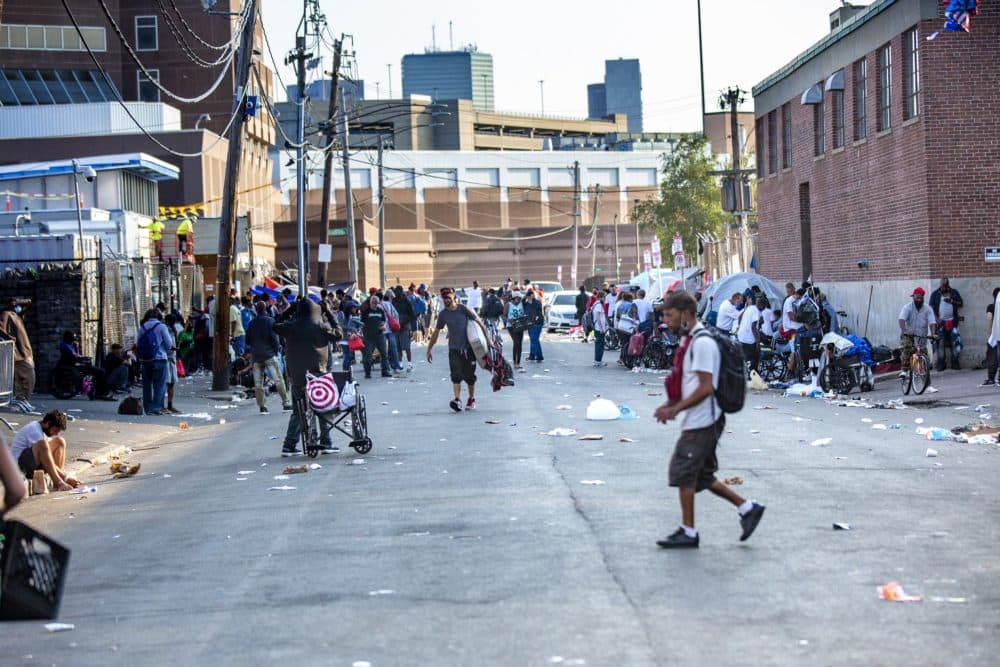
Hunter, who is also the executive director of the Police Assisted Addiction and Recovery Initiative, or PAARI, is familiar with addiction. The syringe redemption program is operating in three locations in Boston, and the city is providing $388,000 to fund it this fiscal year.
Since the program started, it has collected more than 580,000 needles. It's one of four city programs that collect discarded syringes, but it is unique in its approach of paying people to pick them up. The program takes in almost twice as many syringes as the other three programs combined.
Some residents and business owners say the problem of discarded needles littering city streets worsened during the pandemic, and they remain a major issue. But Devin Larkin, director for the Recovery Services Bureau of the Boston Public Health Commission, says emergency calls about discarded syringes are down about 50% since the program began.
"It's certainly keeping the area cleaner," Larkin said "People are taking more ownership of this issue in the neighborhood, which I love to see. When you see a syringe on the ground, somebody picks it up almost right away."
Advertisement
The participants get some cash, supplies and referrals to services. Josh DeLisle, a police officer who also works with the company running the program, says it helps connect public health workers with those who are often living on the streets and dealing with mental health issues or a substance use disorder.
"If you're living high-to-high, like a lot of these people are, the next thing you think about is where to get the money for the drugs you're going to be using," DeLisle said. "And often times the people out here will resort to things that aren't necessarily too good. This here, gives purpose and gives them money as if they're out there actually working a regular job."
That's the case for Chris, who didn't want to use his last name because of his addiction. He's 33 years old and has been staying at a homeless shelter in the area for about a year. He turns in needles just about every day to help pay for his morning dose.
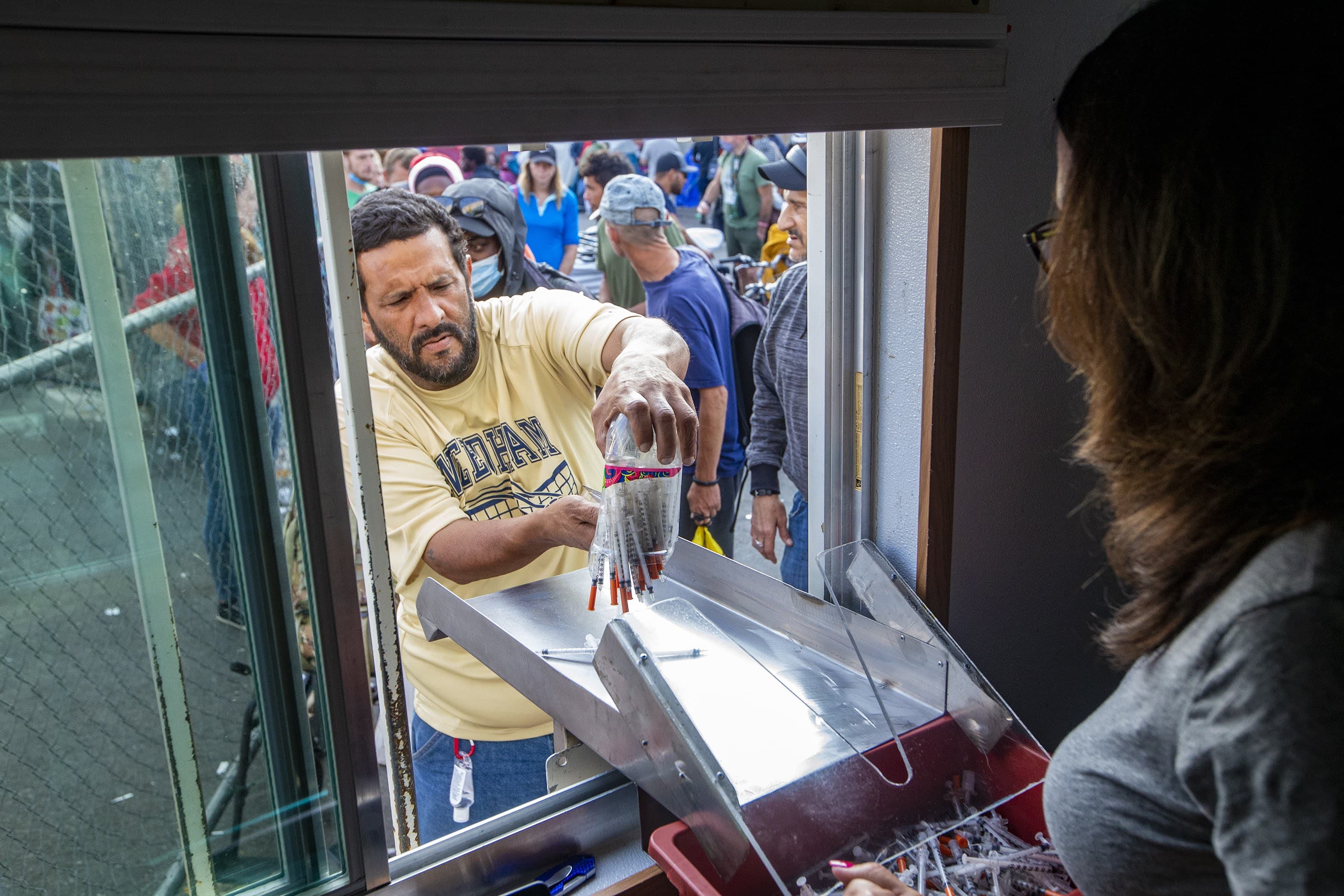
"It's that morning check in — that, 'Hey how are you doing?' It gives me that second thought about doing something crazy to alleviate the stress of not having the money to buy my medicine, as I call it," Chris said. "It's like I'm constantly diffusing a bomb in dealing with my illness."
More from WBUR
Chris has gone to treatment programs several times and has been fighting addiction for years. At this point, he says he will probably be opioid dependent for the rest of his life. Through tears, he says he gathers needles, so he doesn't have to resort to crime.
"It's something I become emotional about on a daily basis," Chris said. "I don't engage in any immoral behavior outside of taking the medicine, and it's like I'm grouped in with a bunch of felons that might or might not. They find ways to make money, and I don't take those routes, you know what I mean? So I'm left with very little."
Chris collected $10 that day. After we spoke, he took his backpack of belongings and walked onto Atkinson Street amid the rows of tents lining the sidewalks. A long line of people were still waiting to turn in more syringes.
This segment aired on August 9, 2021.
